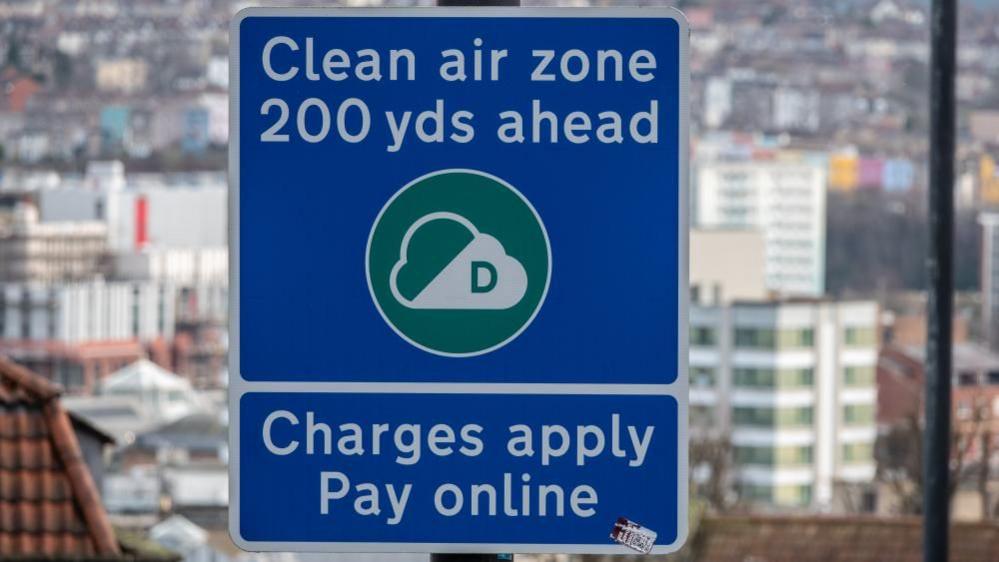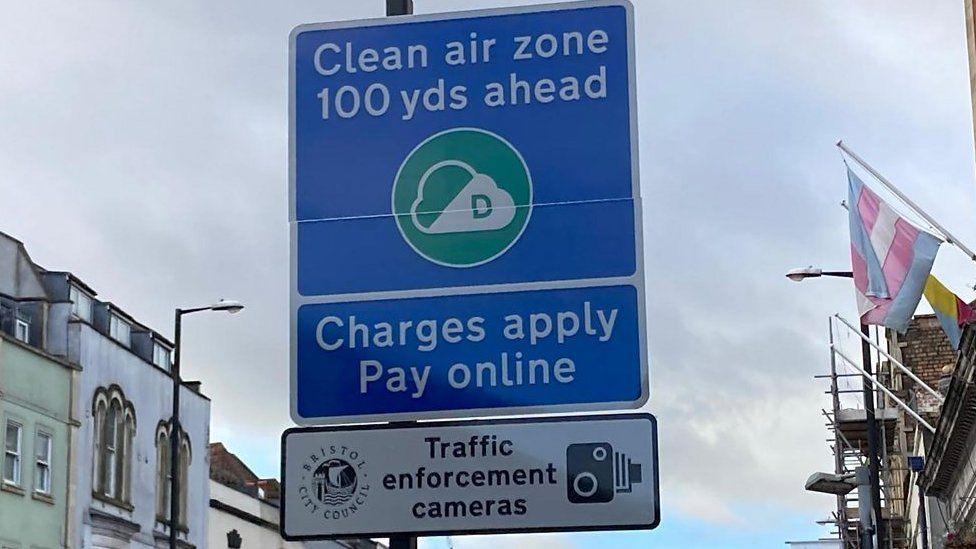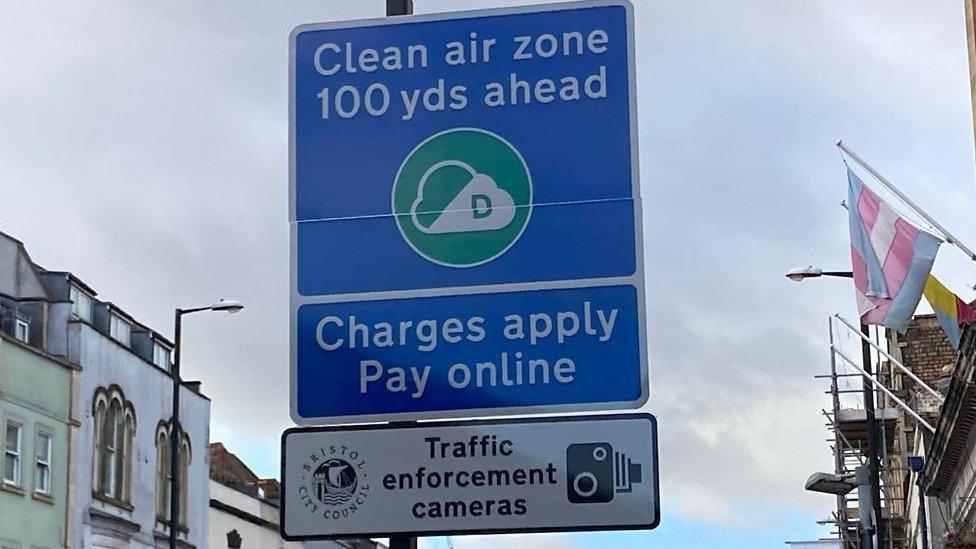Fee hike for Clean Air Zone charges blocked

The Clean Air Zone has not yet brought pollution in Bristol within legal limits
- Published
A proposed fee hike for motorists entering Bristol's Clean Air Zone (CAZ) has been ruled out for now.
Since the CAZ was introduced in 2022 in a bid to tackle pollution, levels of nitrogen dioxide have fallen within the zone that it has covered - but a recent report showed pollution was still high.
It recommended Bristol City Council consider increasing the fee from £9 a day up to potentially £14 a day to deter drivers of non-compliant vehicles from entering the zone.
Plans to consult residents on the increase were voted down by opposition council members at the Environment and Sustainability Committee meeting on Thursday.
The policy paper was voted down by five votes to four, with Labour, Liberal Democrats and Conservatives voting against the plans.
Councillor Martin Fodor, chair of the Environment and Sustainability Committee, said the first two years of the scheme have delivered significant reductions in pollution, but some sites are not currently at the legal air quality limit.
"We are required by government to work as quickly as possible to reduce the number of non-compliant vehicles entering the zone," he said.
"We will continue working with government to explore alternative options through further analysis and modelling."
Labour councillor Kirsty Tait, vice chair of the Environment and Sustainability Committee, said: "Hiking the charges – potentially up to £14 – would hurt working class communities like mine, who are already struggling with the cost-of-living crisis.
Councillor Tom Renhard, Leader of Bristol Labour, claimed the hike was a "money-raising exercise."
"The £9 charge was set after years of consultation and consideration, based on expert advice, modelling, and data projections," he said.
"There should be a focus on improving public transport options across the city and a plan to replace the council's polluting vehicles with electric cars."
Mr Fodor said the CAZ has "never been about raising money."
"The CAZ pays to run itself and any surplus income generated is reinvested in better transport choices for residents," he added.
Millions of pounds raised from the Clean Air Zone fees have been used to improve alternative forms of transport, such as introducing new bus services, said the Local Democracy Reporting Service.
The CAZ was introduced in 2022 to tackle dangerous levels of nitrogen, a pollutant which has been linked to cardiovascular disease, respiratory illness and early death.
Between November 2022 and December 2023, nitrogen dioxide levels dropped by 12.6% inside the zone and 7.8% across the wider city, according to council figures.
Last year, levels dropped by 5.1% inside the zone and 4.4% outside the zone.
Government regulations state nitrogen dioxide levels must not exceed 40 micrograms per cubic metre of air.
Next year, the council will draw up a broader strategy on improving air quality and focus on upgrading its own fleet of vehicles to be less polluting.
Get in touch
Tell us which stories we should cover in Bristol
Follow BBC Bristol on Facebook, external, X, external and Instagram, external. Send your story ideas to us on email or via WhatsApp on 0800 313 4630.
- Published31 October

- Published10 September 2024

- Published16 January 2024
